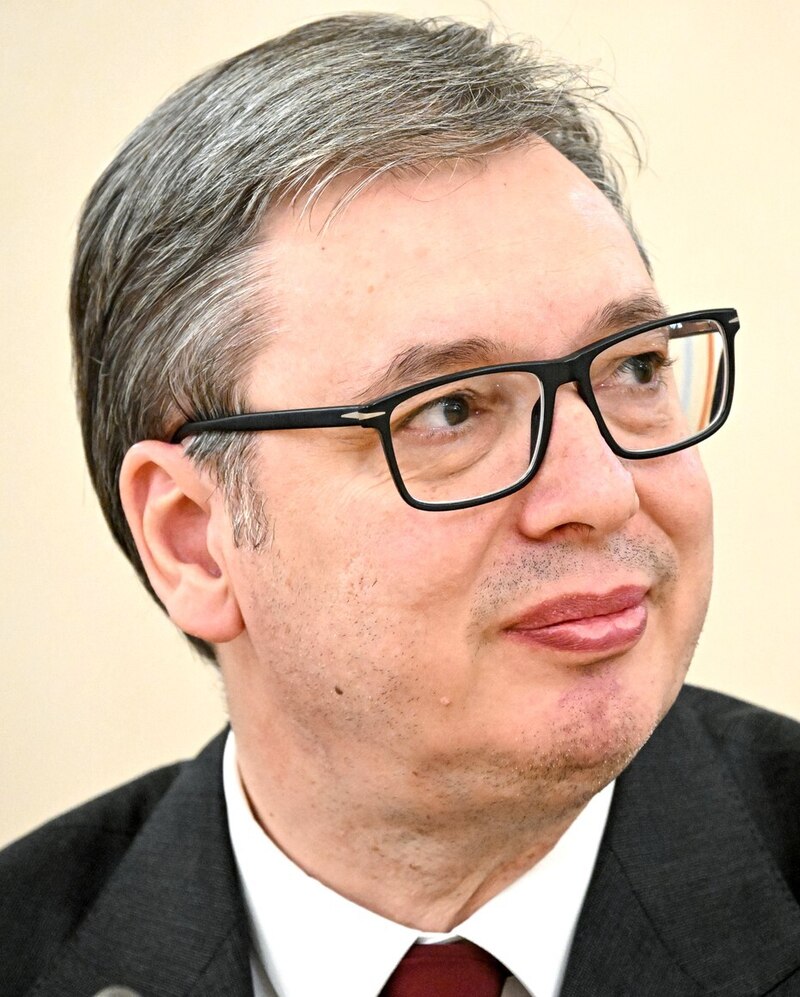Serbian President Aleksandar Vučić is continuing a delicate diplomatic balancing act as he tries to maintain strong relations with Russia while keeping Serbia’s long-standing aspirations for European Union membership alive.
Vučić’s recent appearance in Moscow at Russia’s Victory Day military parade in May stirred criticism from EU officials. The visit marked his first since Russia’s full-scale invasion of Ukraine in 2022 and was seen by some European policymakers as a troubling sign of alignment with the Kremlin at a time when Brussels has demanded clearer commitments from EU candidate countries.
Despite Serbia’s candidate status, Vučić has refused to join Western sanctions against Russia. He has consistently emphasized historical, cultural, and religious ties with Moscow, particularly highlighting cooperation on energy and security. However, this position is increasingly difficult to sustain in light of both geopolitical pressures and Serbia’s stated goal of joining the EU.
Tightrope diplomacy: Vučić balances between Brussels and Moscow https://t.co/lv25zG8aOU pic.twitter.com/BZzPJwAMzp
— Euractiv (@Euractiv) June 13, 2025
Relations with Russia were further tested when reports emerged suggesting that Serbian-made ammunition had ended up in Ukraine. The Russian state-controlled broadcaster RT accused Serbia of indirectly supplying Kyiv with weapons, despite Belgrade’s official stance of neutrality. The Financial Times and SIPRI data showed that Serbia exported around €800 million in arms and ammunition to third-party countries between 2022 and 2024—sales that, according to Vučić, are legal and beyond the government’s control once delivered to intermediary buyers.
In a move viewed by some observers as a symbolic nod to the West, Vučić attended the Ukraine–South-East Europe Summit in Odesa this summer. There, he met with Ukrainian President Volodymyr Zelensky and voiced support for Ukraine’s territorial integrity. However, Vučić declined to sign the summit’s final declaration, which explicitly condemned Russia’s aggression—an omission that underscored Serbia’s attempt to maintain strategic ambiguity.
European officials have stepped up their pressure on Serbia. EU foreign policy chief Kaja Kallas has called on Vučić to make a clear strategic choice between aligning with democratic values or continuing to hedge between East and West. Brussels has particularly emphasized reforms in media freedom, rule of law, and electoral transparency as key conditions for any progress in Serbia’s accession process.
While Vučić has made some political shifts, such as removing pro-Russian security chief Aleksandar Vulin from government, analysts caution against reading these moves as genuine policy reorientations. Igor Bandović, director of the Belgrade Centre for Security Policy, noted that ties between Serbian and Russian security services remain robust and that Moscow retains considerable influence in the region.
Vučić’s approach reflects a broader pattern of pragmatic diplomacy, leveraging relationships with Russia and China—both of which invest heavily in Serbian infrastructure and energy—while seeking financial and political support from the EU. This multi-vector foreign policy allows Vučić to maximize external support without committing fully to any single bloc.
Domestically, Vučić faces growing unrest over issues including corruption, rule of law, and public safety. Critics argue that his foreign policy is driven less by ideological alignment than by a desire to maintain political control and extract maximum leverage from competing global powers.
Despite a growing chorus in Brussels calling for clarity from Belgrade, the EU continues to offer targeted incentives to keep Serbia engaged, including infrastructure funding and bilateral economic agreements. However, without decisive alignment from Vučić’s government, Serbia’s European path remains stalled.
As tensions between the West and Russia continue to define the European security landscape, Serbia’s ambiguous positioning under Vučić remains both a diplomatic asset and a political gamble.
Copyright picture of President of Serbia Aleksandar Vucic: Sergei Bobylev, RIA Novosti, CC BY 4.0 <https://creativecommons.org/licenses/by/4.0>, via Wikimedia Commons

